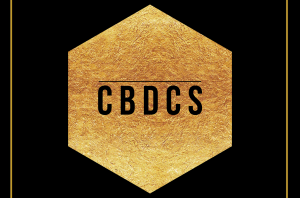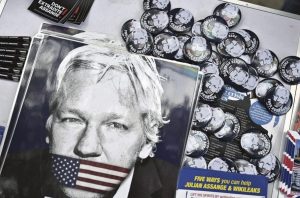
Barack Obama actually has a complex history.
His mother has served as any of a number of useful oversimplifications. In the capsule version of Obama’s life story, she is the white mother from Kansas coupled alliteratively with the black father from Kenya. She is corn-fed, white-bread, whatever Kenya is not. In Dreams from My Father, the memoir that helped power Obama’s political ascent, she is the shy, small-town girl who falls head over heels for the brilliant, charismatic African who steals the show. In the next chapter, she is the naive idealist, the innocent abroad. In Obama’s presidential campaign, she was the struggling single mother, the food stamp recipient, the victim of a health-care system gone awry, pleading with her insurance company for coverage as her life slipped away. And in the fevered imaginings of supermarket tabloids and the Internet, she is the atheist, the Marxist, the flower child, the mother who “abandoned” her son or duped the state of Hawaii into issuing a birth certificate for her Kenyanborn baby, on the off chance that he might want to be president someday.
In 1960, Dunham’s family moved to Hawaii, where she enrolled in college. It was in Hawaii that she met a Kenyan student named Barack Obama. Three months pregnant with their child, she married him in 1961. Obama Sr. stayed in school in Hawaii, and Dunham returned to Seattle with her newborn baby, Barack. She returned to Honolulu in 1963; she and Obama divorced in 1964. In 1966, Dunham married Lolo Soetoro, an Indonesian man studying in Honolulu on a student visa.
Obama was largely raised in Hawaii for the first six years of his life, but in 1967, he moved to Indonesia with his mother to join Soetoro, who worked as a surveyor for the Indonesian government and then a consultant for Mobil. Dunham taught English, worked in rural development and consulted on microfinance projects. Obama attended local schools in Jakarta. He also, at her insistence, took English correspondence classes and regularly woke up before dawn to go over his English language skills.
She believed that he deserved the kind of opportunities that she had had [like] the opportunity to a great university,” Scott says. “And she believed that he would never get that if he didn’t have a strong English-language education. So at a certain point, she decided she wasn’t serving his interests well by keeping him in Indonesia and in Indonesia schools.”
Four years later, Obama moved back to Hawaii to live with his grandparents while his mother stayed in Indonesia with her second husband and daughter Maya Soetoro-Ng. It was a complicated decision — and one that most people don’t give her credit for, Scott says:
“She was juggling a number of things: She wanted her son to get a good English-language education, which wasn’t available to her in Indonesia. She had an Indonesian daughter and an Indonesian husband at the time. She needed to be able to work to pay for the education she wanted for her son and her daughter. In order to work, she was going to need some kind of advanced degree. So she was juggling a lot of things.” In 1972, Scott says, Dunham rejoined her son in Hawaii and stayed there during his middle school years. She returned to Indonesia to do anthropological field work shortly after he entered high school.
Obama decided not to return to Indonesia with his mother. In 1985, she wrote a list of her long-range goals, which included “finish[ing] her dissertation, making a salary of 60K, los[ing] weight … and having constructive dialogue with Barry” — a nickname used for the junior Barack Obama.
Scott says she doesn’t know of any problems between Obama and his mother, but there were some indications that his mother felt some sadness about the physical distance between them.
“At different moments in her life she is upset, and at one point, in his senior year of high school in Hawaii, she goes back just to be with him because she realizes it’s the last year of his childhood,” she says. “Later, one friend describes her as wistful about his decision to move to Chicago and root himself in Chicago and emphasize the sort-of black part of himself. So I think there was a theme — and this is just snippets of little things I’ve stumbled upon — that she had a kind of longing for a closer relationship with him.”
To describe Dunham as a white woman from Kansas is about as illuminating as describing her son as a politician who likes golf. Intentionally or not, the label obscures an extraordinary story—of a girl with a boy’s name who grew up in the years before the civil rights movement, the women’s movement, the Vietnam War, and the Pill; who married an African at a time when nearly two dozen states still had laws against interracial marriage; who, at age twenty-four, moved to Jakarta with her son in the waning days of an anti-communist bloodbath in which hundreds of thousands of Indonesians are believed to have been slaughtered; who lived more than half of her adult life in a place barely known to most Americans, in an ancient and complex culture, in a country with the largest Muslim population in the world; who spent years working in villages where an unmarried, Western woman was a rarity; who immersed herself in the study of a sacred craft long practiced exclusively by men; who, as a working and mostly single mother, brought up two biracial children; who adored her children and believed her son in particular had the potential to be great; who raised him to be, as he has put it jokingly, a combination of Albert Einstein, Mahatma Gandhi, and Harry Belafonte, then died at fifty-two, never knowing who or what he would become. Had she lived, Dunham would have been sixty-six years old on January 20, 2009, when Barack Obama was sworn in as the fortyfourth president of the United States.
On her thoughts about articles written about Obama after he was elected president of the Harvard Law Review
” ‘His mother is a white woman from Kansas,’ [or] ‘His mother is an anthropologist,’ or ‘His mother is an anthropologist working in international development,’ and that would be about it. [There were] long descriptions of his father’s family history. She went back to Indonesia during that period and confided to a friend how distraught and upset she was to be reduced to one sentence.”
On interviewing President Obama for the book
“I asked him about the [implication left] by his book that his mother was sort of a naive idealist — something that comes through in the way he talks and sometimes in the way other family members talk about her. But that’s not at all the description that I get from people who knew her as a colleague — close friends of hers. No one has ever described her in that way to me. [Obama] said that he did think of her as a bit that way, but he didn’t think of it as a pejorative. He described those qualities as a source of her strength in many ways.”
Lately, I’ve been reading the galleys of Peter Firstbrook’s “The Obamas,” a history of the African side of the President’s family and a fascinating look at their tribe, the Luo. The book will be published in the spring by Crown; it is already out in the U.K. Firstbrook, a former director and producer for the BBC, interviewed Obama family members, friends, and scholars in Kenya and adds many interesting details to what we know of the President’s heritage.
The most provocative pages are those in which some of Barack Obama, Sr.,’s relatives and friends cast doubt on the official version of his death—that he drove his car into a tree following a day of drinking in Nairobi.
That was the version that Barack Obama, Jr., heard on the night of November 24, 1982, when, as a senior at Columbia University, he got a phone call from a relative in Kenya telling him the bad news. At time of Obama, Sr.,’s death, he later wrote, “my father remained a myth to me, both more and less than a man.” Eventually, Obama met his African relatives and learned that his father was as brilliant as his mother, Stanley Ann Dunham, had always said, but that he had also been an abusive husband, a drunk, and a bitter, broken man who raged against the course of post-colonial Kenya and his own thwarted career in the nation’s hierarchy.
Sources NPR.org, the new yorker






